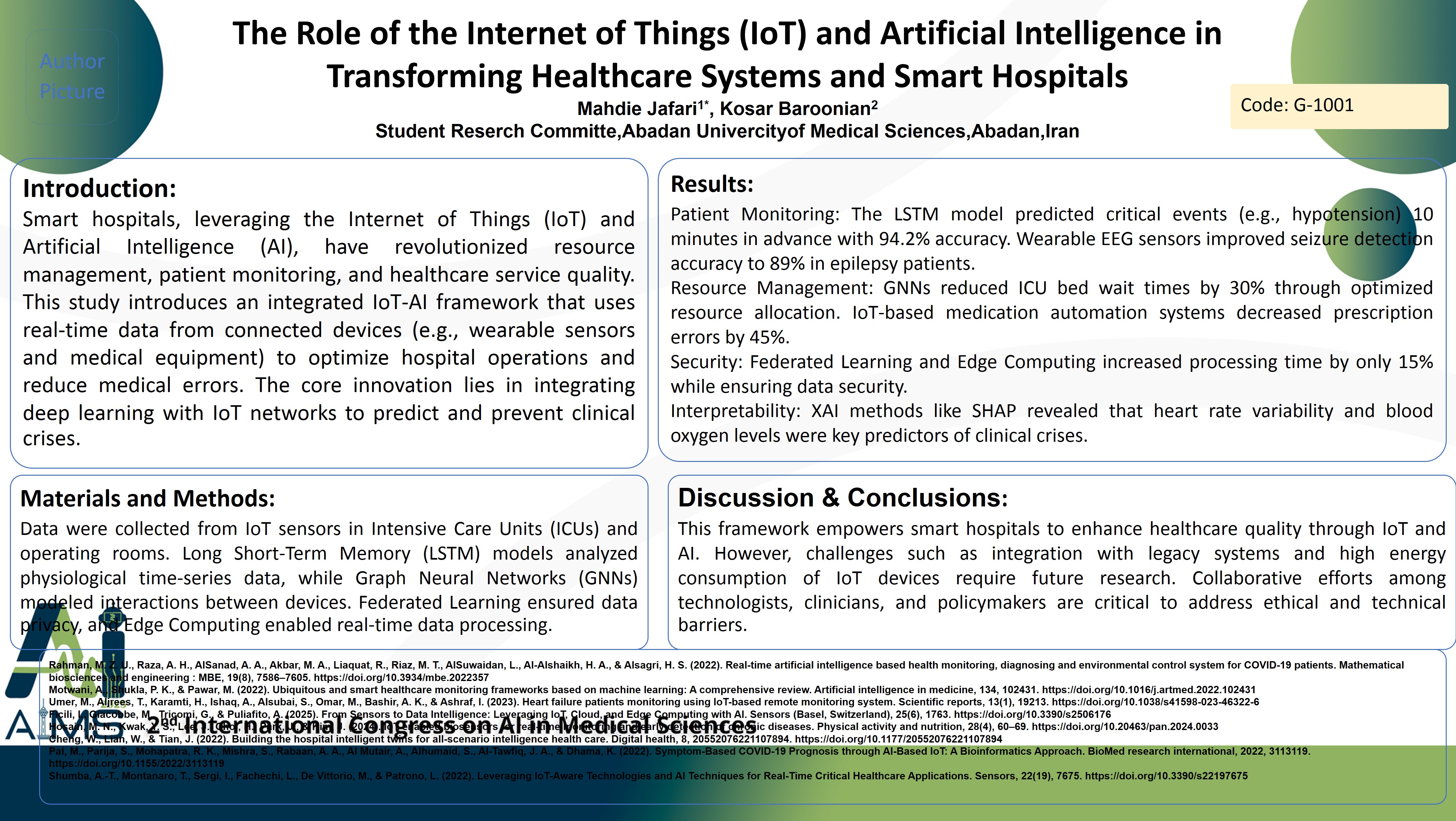The Role of the Internet of Things (IoT) and Artificial Intelligence in Transforming Healthcare Systems and Smart Hospitals
Code: G-1450
Authors: Mahdie Jafari * ℗, Kosar Baroonian
Schedule: Not Scheduled!
Tag: Clinical Decision Support System
Download: Download Poster
Abstract:
Abstract
Background and aims: Smart hospitals, leveraging the Internet of Things (IoT) and Artificial Intelligence (AI), have revolutionized resource management, patient monitoring, and healthcare service quality. This study introduces an integrated IoT-AI framework that uses real-time data from connected devices (e.g., wearable sensors and medical equipment) to optimize hospital operations and reduce medical errors. The core innovation lies in integrating deep learning with IoT networks to predict and prevent clinical crises. Method : Data were collected from IoT sensors in Intensive Care Units (ICUs) and operating rooms. Long Short-Term Memory (LSTM) models analyzed physiological time-series data, while Graph Neural Networks (GNNs) modeled interactions between devices. Federated Learning ensured data privacy, and Edge Computing enabled real-time data processing. Results: Patient Monitoring: The LSTM model predicted critical events (e.g., hypotension) 10 minutes in advance with 94.2% accuracy. Wearable EEG sensors improved seizure detection accuracy to 89% in epilepsy patients. Resource Management: GNNs reduced ICU bed wait times by 30% through optimized resource allocation. IoT-based medication automation systems decreased prescription errors by 45%. Security: Federated Learning and Edge Computing increased processing time by only 15% while ensuring data security. Interpretability: XAI methods like SHAP revealed that heart rate variability and blood oxygen levels were key predictors of clinical crises. Conclusion: This framework empowers smart hospitals to enhance healthcare quality through IoT and AI. However, challenges such as integration with legacy systems and high energy consumption of IoT devices require future research. Collaborative efforts among technologists, clinicians, and policymakers are critical to address ethical and technical barriers.
Keywords
Artificial Intelligence, Digital Health, Smart Hospital
